In the realm of dental health, two common procedures often come to the forefront when dealing with serious tooth damage or decay: dental implants and root canals. Both methods serve the purpose of preserving oral health and function, yet they each have distinct procedures and outcomes.
Choosing between a dental implant and a root canal can be a significant decision, impacting not only oral health but also comfort, appearance, and, ultimately, quality of life. This guide will delve into the details of both dental implants and root canals and help you make an informed decision about the most appropriate treatment option for you.
What Exactly Are Dental Implants?
Dental implants serve as an effective solution for replacing lost teeth, acting as a synthetic tooth root. These implants form a robust base for permanent or removable prosthetic teeth, which are crafted to blend seamlessly with your existing natural teeth. This dental restoration approach ensures both functionality and aesthetics.
How is the Dental Implant Procedure Conducted?
The dental implant procedure is a multiple-step process that often spans several months, designed to replace a missing or infected tooth with a durable, functional, and aesthetically pleasing artificial tooth. The process typically commences with a thorough examination of the patient’s oral and overall health to determine their suitability for the procedure.

If the patient has an infected tooth, the first step is usually tooth extraction. This is followed by a period of healing, during which the area where the tooth was extracted is allowed to recover.
The next phase of the dental implant treatment is the actual implant placement. During this stage, a titanium post is surgically inserted into the jawbone, where it will serve as the root for the artificial tooth. This procedure requires time for the bone to heal tightly around the implant, a process known as osseointegration, which can take several weeks or months.
Once the tooth implant has fully integrated with the jawbone, the next step involves placing an abutment on the implant, which will hold the dental crown. The dental crown, which is the visible part of the tooth, is then attached to the abutment, completing the dental implant procedure. The result is a strong and stable tooth that functions just like a natural tooth. It’s important to note that throughout this process, patient comfort and safety are prioritised, with measures taken to ensure minimal discomfort and risk.
What is the Typical Timeline for a Dental Implant Procedure?
The duration for a dental implant procedure can vary greatly, largely depending on the patient’s oral health status and whether preparatory procedures, like tooth extraction or bone grafting, are needed.
On average, the process of getting a dental implant can take anywhere from a few months to over a year.
How Safe Are Dental Implants?
Dental implants are indeed a safe and well-established treatment, widely regarded as one of the most reliable options for replacing missing teeth. They are typically made from biocompatible materials like titanium, which the human body readily accepts, and are carefully designed to integrate with the jawbone, providing a sturdy and long-lasting foundation for the replacement tooth.
Implant surgeries are performed by trained dental professionals and under sterile conditions to minimise the risk of infection. The procedure usually involves local anaesthesia and, in some cases, sedation to ensure patient comfort.
Like any surgical treatment, there are potential risks and complications associated with dental implants, such as infection, nerve damage, or implant failure. However, these risks are relatively low, particularly when the procedure is performed by an experienced dental professional. Proper post-operative care and regular dental check-ups can further reduce these risks.
Dental implants have a high success rate, often exceeding 95%, and can significantly improve oral function and aesthetics.
Who is Deemed Appropriate for Dental Implant Treatment?
- Oral Health: The ideal candidate should be free of periodontal disease. Healthy gums are crucial as the implant needs to integrate into the gum tissue for support.
- Adequate Bone Density: The jawbone needs to have enough bone to support the implant. If bone loss is an issue, procedures such as bone grafting might be necessary before implant placement.
- Lifestyle Factors: Heavy smokers or those who consume alcohol excessively may face complications during the healing process.
What is a Root Canal?
A root canal is a treatment designed to save a severely damaged or infected tooth by removing the damaged or infected pulp (soft tissue) inside the tooth.
What Steps Are Involved in the Root Canal Treatment Procedure?
Initial Examination and Diagnosis
A root canal treatment procedure typically begins with a comprehensive oral examination and diagnosis. This often includes taking X-rays to get a clear image of the tooth and the surrounding bone. If root canal therapy is deemed necessary, the dentist will schedule the procedure.

Anaesthesia and Accessing the Pulp Chamber
Before the root canal procedure begins, local anaesthesia is administered to numb the area, ensuring the patient’s comfort throughout the process. Once the tooth is numb, a small protective sheet called a dental dam is placed to isolate the tooth and keep it clean during the procedure. The dentist then makes an opening in the dental crown of the tooth to access the pulp chamber.
Cleaning and Shaping the Root Canal
The next step in root canal therapy entails removing the infected or inflamed tooth pulp using special dental instruments. The tooth’s interior is cleaned, and the root canals are shaped to make them ready for filling. This part of the process also includes disinfecting the area to eliminate any remaining bacteria.
Filling the Root Canal
Once the root canal is cleaned and shaped, it’s filled with a rubber-like material called gutta-percha. The filling is sealed with an adhesive cement to ensure complete sealing of the canals. After the filling, the tooth is temporarily sealed to prevent contamination before the permanent restoration.
Restoration of the Tooth
The final step in the root canal treatment is restoring the tooth to its full function. This is usually done with a crown or filling. After restoration, the tooth continues to work like any other tooth.
How Much Time Does a Root Canal Treatment Typically Require?
The length of a root canal procedure can fluctuate significantly depending on the specifics of the tooth and the severity of the damage or infection. However, on average, a root canal treatment is typically completed in one to two dental visits, each lasting around 90 minutes to a few hours.
Are Root Canal Treatments Considered Safe?
Indeed, root canal treatments are typically safe and efficacious. They are performed by experienced dental professionals who use local anaesthesia to minimise any discomfort during the procedure. While there can be some post-treatment discomfort or sensitivity, this is typically temporary and can be managed with over-the-counter pain relief medications.

Despite some misinformation, root canal treatments do not cause illness.
According to other international dental and health organisations, root canals are safe and do not contribute to the occurrence of disease elsewhere in the body.
Like any medical procedure, there is a small risk of complications, such as reinfection or tooth fracture, but these risks are minimal and can be further mitigated by following your dentist’s aftercare instructions.
Who is Considered a Suitable Candidate for Root Canal Treatment?
The tooth must have sufficient bone support, and the patient should be in good general health. Those with certain heart conditions or compromised immune systems may not be suitable candidates due to the risk of infection.
Ultimately, a dental professional will determine eligibility for root canal treatment based on a thorough examination and evaluation of the patient’s overall oral and general health.
Root Canal Treatment and Long-Term Tooth Stability
While root canal treatment can effectively save a diseased or damaged tooth, it’s important to understand that the treated tooth can become brittle over time. This is because the procedure involves removing the tooth’s pulp – its living core – which can compromise the tooth’s long-term structural integrity. Consequently, despite successful root canal treatment, these teeth may weaken, crack, or fracture over time, especially if not adequately protected with a crown.
In some cases, if the tooth becomes irreparable, extraction and replacement with a dental implant may become necessary. Dental implants offer a robust and durable alternative, providing both structural support and aesthetic appeal. Therefore, while root canal treatment can be a valuable short to medium-term solution, dental implants may provide a more lasting outcome for oral health.
Reasons Why You Should Choose Dental Implants Over Root Canals
- Longevity
Dental implants can last a lifetime with proper care and regular check-ups, while root canals may eventually fail and require additional treatment or extraction of the tooth. - Bone Health
Dental implants stimulate the jaw bone, similar to natural teeth, preventing bone loss that can occur with missing teeth. In contrast, a tooth that has undergone a root canal does not provide the same level of bone stimulation.
- Better Oral Hygiene
Dental implants are easier to clean than teeth that have had root canals and crowns, contributing to better overall oral hygiene. - Strength and Durability
Dental implants are designed to be extremely strong and durable, providing a biting and chewing capacity that matches healthy natural teeth. Teeth that have undergone root canals, however, may become brittle and more prone to fracture over time. - Success Rate
Dental implants have a high success rate (as mentioned above). Although root canal treatments also have a high success rate, they are more prone to failure than dental implants. - No Discolouration Over Time
A tooth that has undergone a root canal can sometimes discolour over time, even with a crown. Dental implants, on the other hand, maintain their appearance, contributing to a consistently bright and natural-looking smile. - Aesthetics
Dental implants look, feel, and function like natural teeth, providing an aesthetic advantage. - Prevents the Movement of Teeth
When a tooth is missing, the surrounding teeth can shift towards the gap, causing bite and jaw alignment problems. A dental implant fills this gap, preventing such movement. - No Risk of Tooth Decay
As dental implants are made from artificial materials, they cannot get cavities. In contrast, a tooth that has undergone a root canal can still get decay.
Ready to Choose Between a Dental Implant and Root Canal? Reach Out to Toothsome Today!
Navigating the decision between a root canal and a dental implant can be challenging without professional guidance. At Toothsome, we’re here to help you make the best decision for your dental health. Our skilled team of dental professionals will provide you with all the information you need such as the costs, answer any questions, and guide you through whichever procedure you choose.
Don’t compromise your oral health. Discover the most suitable treatment option for you in the root canal vs. dental implant decision. Contact Toothsome Implants Chatswood today to schedule your consultation, and let’s embark on the journey to your perfect smile together.
- Sydney CBD on (02) 9159 3728
- Baulkham Hills on (02) 9158 6637
- Chatswood on (02) 8203 8786
Note: Any surgical or invasive procedure carries risks. Before proceeding, you should seek a second opinion from an appropriately qualified health practitioner.




